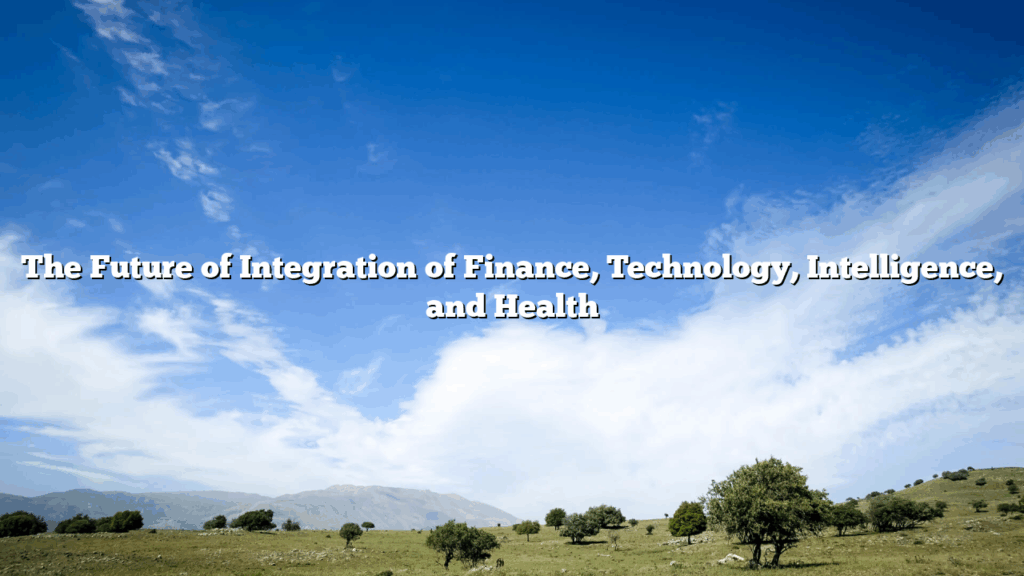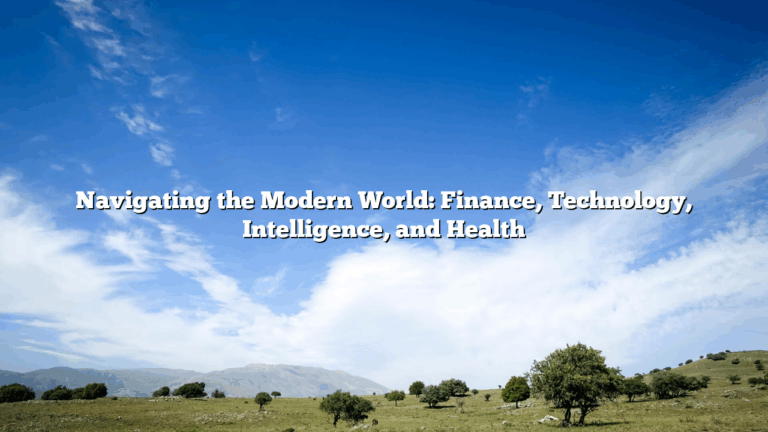
The Future of Integration of Finance, Technology, Intelligence, and Health
With innovation at an all-time high, the intersection of finance, technology, AI, and healthcare is transforming how we live. These sectors, once seen as separate, are now interconnected, creating new dimensions for individuals, businesses, and governments alike.
Finance in the Digital Age
The financial industry has undergone a notable transformation due to advancements in digital innovation. Legacy financial institutions are now being challenged by fintech startups.
Digital wallets like PayPal are becoming mainstream payment options, reducing the need for physical currency. Additionally, the emergence of crypto assets such as Ethereum has opened new channels for investment and trade.
Blockchain-based contracts, powered by distributed ledger technology, are redefining the way we handle transactions. These contracts execute automatically once conditions are met, minimizing the need for third parties.
Bridging the Gap Between Technology and Wellbeing
Modern tech is not only innovating the financial landscape but also advancing the healthcare sector. Through smart gadgets like fitness bands, individuals can now monitor their activity levels in real time.
Telemedicine has become a norm, especially after the COVID-19 pandemic. Patients can consult with doctors without having to visit hospitals physically, thus saving time and reducing exposure.
On the financial side, technology has also enabled automated decision-making. AI-powered investment platforms offer personalized investment strategies based on individual risk profiles.
The Rise of Intelligent Systems
Machine Learning (ML) is at the heart of this digital shift. In banking, AI is used to analyze spending behavior with incredible accuracy.
As an example, credit scoring models that once relied on basic metrics now use AI to evaluate a person’s spending habits using real-time data sources. This ensures more inclusive lending practices.
In Gerhanatoto , AI is driving medical diagnostics. Tools like Google Health AI can analyze vast amounts of medical data to identify anomalies faster than any human doctor.
Using Tech to Improve Personal Health
Information is the new oil in today’s world. Through wearables, individuals can manage their health metrics to prevent diseases rather than treat them.
Apps like MyFitnessPal facilitate healthier living through guided meditation. These technologies also sync with insurance companies to offer rewards for healthier lifestyles, linking financial benefits directly to well-being.
Cloud-based health profiles ensure seamless communication between doctors, specialists, and patients. This not only improves the accuracy of diagnosis but also reduces the chances of medical errors.
Challenges and Ethical Concerns
Despite the benefits, the fusion of these fields also brings risks. Data breaches are becoming more common as financial and medical information is stored online.
Unfair models in both financial lending and healthcare recommendations can lead to social injustice. It’s crucial that AI models are trained on representative datasets.
Furthermore, the access gap means that not everyone can benefit from these advancements. Policies must ensure that rural populations are not left behind.
What the Future Holds
Looking to the future, the integration of finance, technology, intelligence, and health will continue to expand. Blockchain may enable new forms of personalized medicine.
Governments and corporations will need to collaborate on standards to ensure ethical use of these technologies. Education and digital literacy will also play a key role in helping the population adapt to these changes.
To sum up, the blend of finance, tech, AI, and health is not just a trend—it’s the foundation of our future. Those who understand and embrace this evolution will be better prepared for the challenges ahead.


